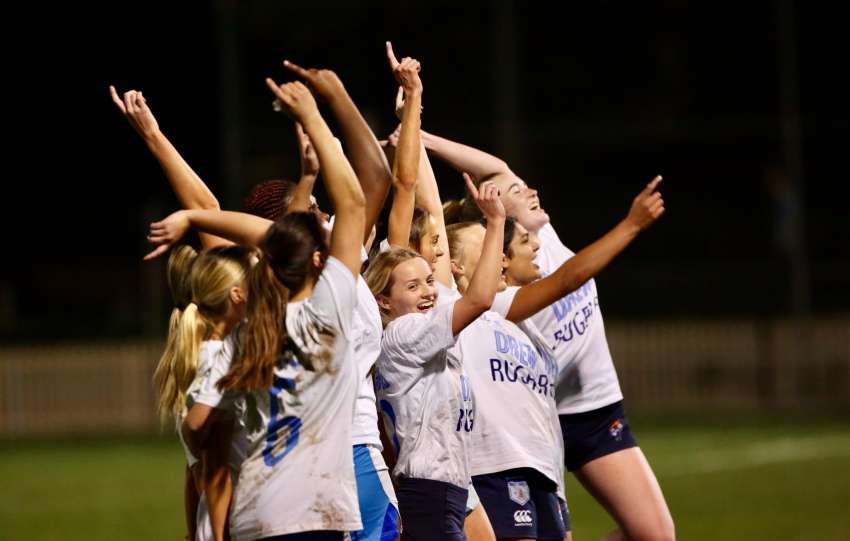Share This Article
Riverview graduate Ed Goodman reflects on his privilege and argues the case for abolishing private schools.
Before I proceed, I would like to note that I am incredibly grateful for the opportunities I have had and continue to have due to my privilege, and I can recognise the irony of an ex-private school student tearing down private schools. However, I also believe that it is important to question and criticise the institutions we subscribe to and to critically evaluate the rituals we partake in, particularly when we are the beneficiaries.
I write this from my bedroom, sitting silently in a Sydney-side sandstone building.
I reside here to enjoy, amongst other things, the ten-minute walk, or more honestly, a two-minute run, onto campus. On campus I can watch the sun, with its tawny rays, transform the great hall’s sharply cut sandstone blocks into softened hues of auburn.
I’ve come to hate sandstone.
I grew up amongst carved sandstone. At the age of eleven, I attended my school’s ‘gifted and talented’ program. Our academic efforts were recognised, and our juvenile minds challenged within sublime sandstone walls that imparted a tone of superiority. Our reward was the view that overlooked Lane Cove River whilst our feeble voices discussed the implication of Plato’s cave and the discourse of Socrates’ symposiums. This was my first indication that the classics and sandstone are symbiotic. As it seems where one exists, the other inevitably follows.
As I progressed through school, this relationship became increasingly apparent. I would walk out of an English Extension discussion about whether Sisyphean undertones were inherent of Satrean ‘bad-faith’ character arcs, into a Classical Greek class to continue translating the thirteen-hundred lines of Euripides’ ‘Electra’. And now I attend the University of Sydney, which boasts one of the best classics departments in the country.
I believe there is a simple reason as to why such a relationship between sandstone buildings and the classics exists. They share an entrenched common denominator: an exclusivity reserved for those who can afford it.
However, as I’m sure you’ve gathered, this isn’t just about Classical Greek in the classroom or the structural makeup of buildings. It’s entrenched in the fabric of our education system. A system which from primary, to tertiary, to academia, is predicated on exclusivity. An exclusivity that is propelled and protected by the innate fear that accessibility diminishes the worth of our knowledge. The fear that a degree from Oxford isn’t interesting once everybody has one, and knowing Ancient Greek isn’t worth it if it doesn’t set me apart from the crowd. In order to retain this exclusivity, and this ‘specialness’, barriers are established. Predominantly in the form of financial gaps and networks which are designed to retain tradition and defend the exclusivity of their superiority.
The Barriers to Knowledge
In response to the current funding gap of schools, the Coalition Government proposes the euphemistic tautology that ‘how money is spent is more important than how much money is spent’ (G. Fahey, 2019). In turn, they often support performance-based funding as opposed to needs-based.
The logic of performance-based funding is intuitively sound. Rewarding schools for better outcomes with financial incentives will surely produce smarter students. However, this model doesn’t account for pre-existing inequality. A performance-based model unequivocally favours well-to-do private schools who already ensure their student’s academic potential isn’t locked behind paywalls or limited by dollar signs. Further, it’s clear that private schools, as firms in the market, are already incentivised to produce the best academic outcomes to entice prospective students and wealthy parents. Often these schools go to great lengths to ensure their statistics are marketable, including asking students to leave if they do not meet academic thresholds, requiring mandatory entrance exams, or asking academically weak students to forgo sitting the HSC in favour of part-time TAFE studies (whilst requiring students to continue paying fees, of course). Whilst performance-based funding seems far-fetched, it’s the basis for the current ‘Job-Ready Graduates’ university funding scheme.
Gillard’s Review of Funding for Schooling in 2011 uncovered that in Australia, the largest factor determining academic performance was socioeconomic background. The recommendation proposed by this review was a ‘sector-blind’ funding model that allocated funding based on need, regardless of its status as public or private. The Federal Government’s subsequent proposals of ‘Gonski’ and ‘Gonski 2.0’ were conservative, at best, and yet failed to shift statistics of inequality within education attainment, partially because lobbying from the private and catholic school sector was loud.
Scott Praser – the then Executive Director of the Public Policy Institute at the Australian Catholic University.
The idiocy of this statement can be better understood if rephrased:
‘We need to discuss why there’s a hole in your bucket and stop focusing on whether or not you should get a new bucket. Yes, St. Alloysius did get a golden bucket. Stop asking about it.’
However, taking statements such as these at their best, we can see that they’re euphemistic tautologies with no basis in policy. In regard to quality, Private and Catholic schools siphon scarce resources away from Public schools and yet are often unwilling to share their abundance. The practice of poaching teachers is well-known amongst these institutions which offer scholarships and graduate positions to academically gifted undergraduate students studying education and offer significant pay-increases and bonuses to gifted teachers in the public sector. Ultimately, this removes the most valuable resources from the already underfunded public sector.
For example, there are very few proficient Classical Greek teachers in New South Wales and the bulk of them are siphoned from universities into private school. An analysis of the students who placed in the top five of the state for Classical Greek from the past five years proves this: sixteen attended Sydney Grammar, three attended St. Ignatius, and four attended Pymble Ladies College, and none attended public secondary schooling.
Further, these private institutions are often unwilling to share their abundance of resources. For example, in May 2020, Newington College proposed a deal to the local council to obtain exclusive access to the local public park at certain times for 30-years in return for contributing to its improvement. Amidst public backlash, the council declined Newington’s proposal unless they would agree to provide the public access to their facilities which include an Olympic sized swimming pool, a set of cricket nets, three ovals for rugby, two ovals for football, six basketball courts, eight tennis courts, three volleyball courts, a rifle range, and rowing facilities. Newington declined the council’s new deal.
I’m not claiming that the solution to this inequity is to level private schools and collectivise NESA. However, it is clear that significant reform is required, including the implementation of an authentic sector-blind model of funding.
Ensuring the Past becomes the Present
The exclusivity built into the framework of private schools ensures that these sandstone buildings function as echo-chambers which tend to reverberate the same beliefs. Networks provide free-passes to those within the inner-circle of alumni and ensure cohorts are replicated. Fathers and mothers who attended a school, send their sons and daughters, ensuring their lineage is followed. This, in of itself, is not dangerous so long as these institutions maintain a sufficient degree of progressiveness and self-reflection, however, it is often the case that these institutions, lobbied by a conservative consumer base, maintain their conservative traditions.
The most disappointing example of such became evident towards the end of 2018. A collective of Anglican schools in NSW sent a letter in support of maintaining their ability to terminate the employment of LGBTQ+ staff members. Shore, The Kings School, and Abbotsleigh were three of the thirty-four signatures that supported such a proposal.
Whilst unfortunate, this was not surprising. Intuitively, placing thousands of students into a single institution who, for the majority, are the children of significantly wealthy parents, predominately White, and predominately have some form of Christian affiliation, is going to create an echo chamber that supports and maintains their privilege. Without significant emphasis placed on reflection, critical evaluation, and recognition of one’s privilege, this echo chamber is perpetuated.
Private schools have the means to enact this degree of reflection too. Earlier this year, Chanel Contos’ lobby group ‘Teach Us Consent’ exposed a historical presence of rape culture within Sydney Private Boy’s Schools. From over four thousand testimonies: 166 could be attributed to students that attended Cranbrook, 151 from Scots College, 103 from Shore, 90 from Knox Grammar, and 89 from St. Ignatius College. Whilst the testimonies detail abhorrent acts, it has engendered a genuine and necessarily erudite dialogue that is forcing the education system to engage with and administer holistic sexual education earlier in the curriculum.
This demonstrates that these institutions can shift to adopt progressive viewpoints and doing so is crucial to ensuring their students are well-rounded and thoughtful individuals who are able to perceive the totality of Australian society, which is far bigger and more diverse than their microcosmic echo chamber.
Importantly, I believe that these institutions should try harder to ensure their cohort more closely represents Australian society. Through interacting and engaging with one another as a diverse and representative demographic, individuals are able to simulate a more authentic representation of the real world and dispense of any preconceptions, prejudice, or bias. Practically, this would involve providing significantly more means-based scholarships, ensuring boarding spaces are prioritised towards students from regional or international locations, and abolishing the strict emphasis on co-ed environments. It is logically absurd to claim that these schools are preparing students for the professional workplace when these students receive insufficient opportunities to work collaboratively with members of alternate gender identity, race, or class. In an Australian society that already affirms the White, cis-hetero, Christian identity, diversity is critical, especially during the formative years of schooling.
Classical Greek and sandstone buildings are not inherently bad. In fact, I cherish my time in sandstone buildings and the years I spent memorising the declensions of Classical Greek. However, the exclusivity that underpins them, and the desperate attempts to maintain barriers to education is fundamentally flawed. To fix the confronting issue of educational inequality, we must fundamentally shift the way we value knowledge. Education is not a scarce resource, and it would be remiss to treat it as such.
This piece was submitted in the Drew’s News Lockdown Writing Competition 2021.
Image: Pexels



